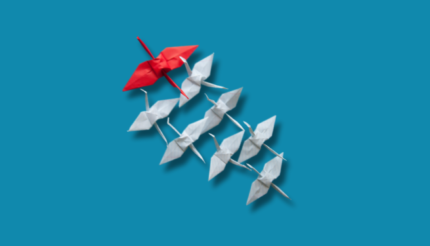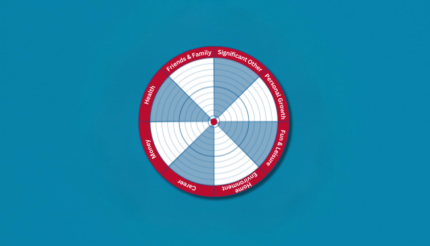Life is a learning experience. Learning and personal growth go hand in hand, so you want to keep learning all the time in order to become successful. Determination alone isn’t enough to help you achieve your goals.
Do you remember the formula for life success?
Dreams x Goals x Learning x Planning x Action = Success
As you can see, learning is an essential part of the journey. So, how do you determine what the essential things to know are? And what are the effective ways to learn to get after your goals faster?
Brad Sugars, Chairman and Founder of ActionCOACH says, “learn before you earn”, so you need to learn how to learn, to acquire the necessary knowledge to meet your goals and become successful.
Where Do You Start?
The learning process starts when you’re young. It’s important to remember that the traditional education system is designed to create employees; at school, you learn to be good, do what you’re told, and follow orders. It’s not particularly geared towards teaching you how to think for yourself, or at least not until you reach the higher levels.
That’s why it’s a great idea for people to go to University – it’s here that you are much more likely to develop a learning system that is based on active participation.
Remember that there are many different ways in which people learn. However, the basic pattern is similar for everyone.
When you start reading about a new or unfamiliar topic, you are presented with a multitude of ideas and may enter a stage of confusion. It’s best just to accept that as part of the process and know that you will be able to get better at whatever you’re trying to do or learn.
The more you learn, the easier it becomes to ask the right questions – the ones that your brain needs to come up with the correct answers. That’s participation: writing, asking further questions, seeking answers from other sources, or having conversations with experts.
This is why coaching works so well; coaches ask you questions that you may not feel like asking yourself. Tutorials, seminars and conferences can be really good too — you will hear different opinions and listen to information from different sources that will keep you engaged and encourage your curiosity.
Find Your Best Form of Learning
The purpose of learning is to reach a level called mastery, following the three stages of learning:
- Learning
- Doing
- Teaching
You start as an apprentice and need to become a master in order to teach what you’ve learnt to someone else. You can then teach to students, employees, or other people in your industry who know less about a topic than you do. Part of leadership is learning and becoming a teacher. Great teachers are great leaders.
Skills like educating, mentoring, and coaching help to make you a leader. Remember that if you can’t teach it simply, you don’t yet know your subject matter well enough, so keep learning until you reach mastery.
So, what are some of the main forms of learning you can use? Reading, listening, watching a video, participating in events, asking the right people questions; these are all ways to gather information, bring in new ideas and learn new stuff!
Introspection and time to reflect can help you to process the information you are accessing. Journaling can play an important role in personal development — everybody should carry a journal with them.
Write down what you’ve learned each day. Look for lessons and review what happens each day in your journal to help yourself remember them. It also helps you realise how little you know and how much there is to know about the subject you want to learn about.
Brad Sugars recommends you start with a speed-reading course to build the ability to scan a book/piece of work and pick up its meaning. It helps you apply the 20/80 rule: you read 20% of the book to grasp the essence of the entire book (rather like reading a summary of the book). Of course, you can also use audiobooks or other techniques, but speed reading is a skill than will revolutionise your learning process. And you can always read books you’ve enjoyed again at a later moment in your life.
Another tip that can help you learn faster is taking notes, not just when reading, but also when watching videos or listening to content. There’s a magic that comes with writing things down, as it introduces active participation into the learning process.
When possible, attend seminars and events to be in the presence of other people who are a few (or many) steps ahead of you. Interactivity and group learning trigger the emotional part of your brain, changing the way you are learning. Put yourself in learning environments and be active in those communities.
The Three Circles of Learning
Let’s go back to the formula for life success:
Dreams x Goals x Learning x Planning x Action = Success
What level of learning do you need before you can develop a plan to achieve your goals?
There are three circles of learning, and you need to progress through each of them:
- Intention (a goal) – something you intend to do/achieve
- Attention (the plan) – the moment when you take action to make sure the goal becomes a reality
- Skills – the abilities you build with time and practice. You need time, energy, and effort to put into the task to gain and master skills
Every part of our life is a learning environment. The only failure is the failure to participate. So, step outside your comfort zone and turn every activity into a learning activity. Learn to see every situation as a learning opportunity.
Remember Brad Sugars’ words: “You win or learn, not win or fail.” Every situation or person can become a teacher. All the bosses you had can teach how to be a good boss or, if not, how to be a bad boss!
It’s what you learn when you ‘think you know everything’ that counts the most. You should aim to learn continuously and build your knowledge base to become a better you. The only way to outperform the previous day is by always learning something new.
What’s Next?
Think about the skills you want to attain. This way, when you walk into a new environment, you know what lessons you want to take. Make learning intention-focused to create and maintain the habit of being a learner.
Pick the things you are intending to do; approach each day of your life as a learner. Ask yourself, “What do I want to learn by being in this environment today?” and “How will I learn that?”
Think of 10 people you want to interview and learn from — they should be part of your network. Interview them, ask them what they know about success and how they acquired their skills. If they knew a way to fail, what would it be?
Keep learning. Have fun with it! Become a lifelong learner.






Good post. I learn something totally new and challenging on blogs I stumbleupon every day. It will always be interesting to read through articles from other writers and use a little something from other sites.